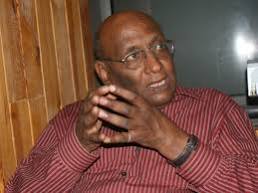Opinion
Culture and the melee: Why is the Sudan war passed over in the world? (1-2)

By: Abdullah Ali Ibrahim
Many commentators are agreed that Sudan’s war is little mentioned in the world. Some of them attribute this neglect in terms of the context to the ongoing wars surrounding it in Ukraine and Gaza. Others attribute this negligence to global and regional powers standing behind this war, even if in good faith, out of ignorance about the realities in the Sudan. Most of this criticism focused on America and its role in the transitional period for democracy that ensued following the December 2018 revolution, to the extent that journalist Edward Wong and others accused it, in an article in the New York Times, of “naivety”.
Alex de Waal, on the other hand, said that America failed to handle the issue, either way good or bad. Justin Lynch of the New York Times charged that the confused efforts exerted to integrated the (Rapid Support) into the armed forces, as delegated to mediator of lower diplomatic caliber, have in fact led to the war
The American and European efforts to bring in democracy to the Sudan have not only failed, but they further dragged Sudan to total collapse as well
However, the matter is more complicated. Whether it is true to accuse the world of starting this war out of negligence or not. According to Williamson, author of “Military Strategy and Effectiveness”, war is an extremely complex endeavor. Nothing like it in terms of being eager to invoke thought and morality to achieve its goal. This is what von Clausewitz said two centuries ago about the need for war, like every complex task, for capable minds who retain, in the darkest hour, some glimmer of inner light that illuminates the path to truth, and then the courage to follow this little light wherever it leads you.
In simple words, war is a culture in and outside the battle field, and here is the core of the Sudan war. The meanings of this deadly war are absent from us and from the world because the Sudanese elite are busy with the war of their parties on the right and left. The first of this elite war the mutual accusations about who, not the two armies, started this war. They fought, and are still engaged in it, their war about the war in the field over the media, even though either of them claimed to start the war is above their payment grade, as the English saying goes.
To prove the crime of war, one against the other, they were tried with circumstantial evidence at best, if not out of releasing out historical anger between these two bulls, who have made their dispute since early times, the demand of the Sudanese politics and its ultimate objectives. This marginal role of the elite in the field war is a bitter result of the prolongation of the war in Sudan since its independence in 1956. The most serious consequence of its prolongation is that the civilian elites have become a major political loss. We did not have the intellectual with an all-round vision who, in Edward Said’s definition, shouts the truth and seizes the rest of the opposition without mercy. The war and the drying up of civil society imposed a situation in which the intellectual has become a dependency on the military parties to the war.
This is the situation seen up-to-date. The Forces of Freedom and Change (FFC) blame the war on the Islamists (Al-Kizan), which strengthens, whether they wanted it or not, the Rapid Support Forces’ argument that they are the party that the army attacked, while Al-Kizan blame the “FFC” for starting the war therefore strengthen the army’s argument as being a victim of the Rapid Support aggression. This intense clash with each other reached an unfortunate extent, as each of them prepared a list of names from the other party to receive their deserved punishment on Victory Day.
These Elites battles stripped the war of its meaning until it appeared to the world as a fatal conflict between two “generals” hungry for power. The issues that the war challenged the Sudanese existence did not find a place in our elite’s discourse. The positions of alignment against or with one of the two armies (or even neutrality) did not produce knowledge surrounding these challenges with which we could illuminate the darkness. These are challenges to our image of what the modern nation-state looks like, and the professional army in it, which Samuel Huntington said that it is specialized in “managing violence.” These challenges also related to the post-colonial national state and the circulation of power and wealth within it. The regional scope is affected by the deterioration of its environments and the migrations that did not know the “passport” in a famous Sudanese song.
The discourse of the elite circumvented and avoided dealing with the most fundamental issues in the war, such as the status of the army in the modern national state. The FFC does not see in our army what makes it occupy a state for managing violence in such a state. FFC has two arguments for stripping the army of its status in Sudan, the first of which is that it is merely a “Kizan militia, which the Islamists transformed into this capacity during the three-decade rule of the Ignaz. Therefore, no body mourn him who kills himself as the Sudanese saying goes.
(to be continued)



